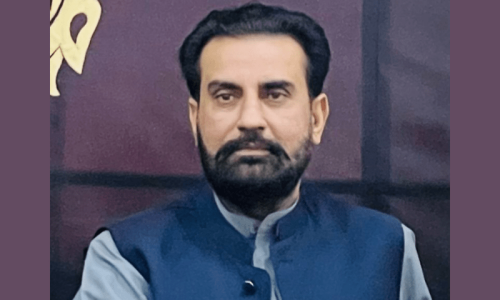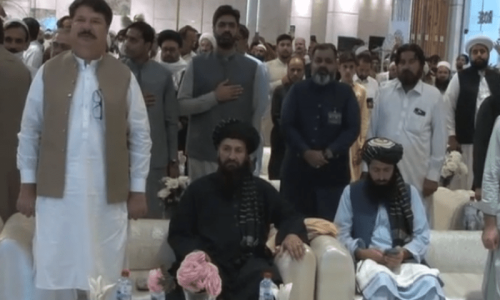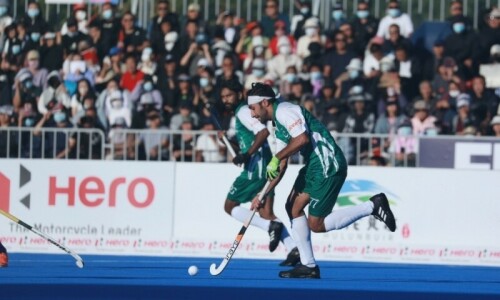
ART of letter writing looks consigned to graveyard in this age of emails and WhatsApp messages. But letters --- I mean the real letters, the good old-fashioned letters written on a piece of paper with a pen --- are simply irreplaceable and irresistible as they have a charm of their own, especially if written by some iconic figure.
Letters written in good old days speak volumes about the writer and the recipient, aside from the subject or issues the letter is written about. And when the letters are the ones exchanged between two scholars known for their candid and straightforward ways as well as eruditeness, the letters become a virtual treasure- trove of rare information, witty remarks and lovely prose.
The last week of February marks death anniversary of Urdu’s two great scholars: Rasheed Hasan Khan (1925-2006) and Mushfiq Khwaja (1935-2005). Luckily, the two literary icons, one from India and the other from Pakistan, were befriended in early 1960s and kept on writing to each other till their last days. These letters, 186 all in all, have been published in a volume titled Silsila-i-Mukatabat: Rasheed Hasan Khan Aur Mushfiq Khwaja Ki Do Tarfa Murasalat. Compiled and annotated by Dr Mahmood Ahmed Kavish, the book is published by Karachi’s Fazlee Books.
As one of the most influential scholars who helped shape Urdu orthography, research standards and principles of textual criticism in 20th century, Rasheed Hasan Khan was also one of the most feared scholars of Urdu as he never minced his words. Though he had to suffer for his straightforward and unambiguous criticism on some of his towering contemporaries, he simply refused to compromise on his standards.
Mushfiq Khwaja was another scholar known for his research works and fearless criticism on some of the bigwigs. His satirical weekly columns on Urdu books and their authors were widely read and reproduced in several Indian periodicals. Surprisingly, these two scholars known for their stringent critical standards had a mutual liking and respect and never wrote against each other. Rather, they were steadfast friends and usually helped each other in their research and critical works.
In these letters, we find that they would exchange notes on important issues and would gather information, books, manuscripts and photocopies on the research work for each other. Whenever Rasheed Hasan Khan began a new project, he let Khwaja Sahib know who would spring up in action to help him in every possible way. Similarly, Rasheed Sahib would send the research material that Khwaja Sahib desired. Both regularly exchanged letters and often sent books and periodicals to each other.
Hence these letters are packed with important and rare pieces on information on research materials, classical works, manuscripts, books and authors. Each also let the other know of his troubles and problems he had to encounter as humble earthling. These letters reveal not only literary information or personal life events but also let the reader have a peep into the real feelings of these giants behind the glare of fame. While Rasheed Hasan Khan sometimes sounds a bit pessimistic in these letters, complaining of the unfair treatment he had to face in his career and the resultant financial constraints, Mushfiq Khwaja rarely if ever loses his sense of humour. Explaining the situation in a brief and witty sentence was the art that Khwaja Sahib had mastered.
But both the scholars in their correspondence appear larger than life, not giving the material world a damn and scoffing at the so-called literary figures that were busy in rat race, forgetting all the moral high values they preached in their writings. These two scholars valued knowledge and wisdom more than anything else. But at the same time, they did not spare any one whom they deemed insincere and shallow. The letters reveal the names of many such scholars.
Dr Kavish has penned a detailed preface that includes introductory notes on Rasheed Hasan Khan and Mushfiq Khwaja. His analysis of these letters and footnotes are something to reckon with. The meticulousness and hard work with which these letters are edited and annotated is rare among our contemporaries.
But at a place or two Kavish needs a little correction: Abul Lais Siddiqi was not removed from Urdu Dictionary Board after Mushfiq Khwaja’s criticism on the first volume of the board’s dictionary, as mentioned by Kavish. Khwaja Sahib had criticised the sample pages of the dictionary in early 1960s in a magazine named Saat Rang while the first volume appeared in 1977. Lais Sahib served the board till 1985 and published five more volumes before being removed. What he says about “kohni daar hay” (‘elbow-shaped’ letter for ‘h’ sound in Urdu orthography) also needs revision.
Mahmood Kavish has already penned four books and deserves our kudos.
Published in Dawn, February 21st, 2022
















































Dear visitor, the comments section is undergoing an overhaul and will return soon.